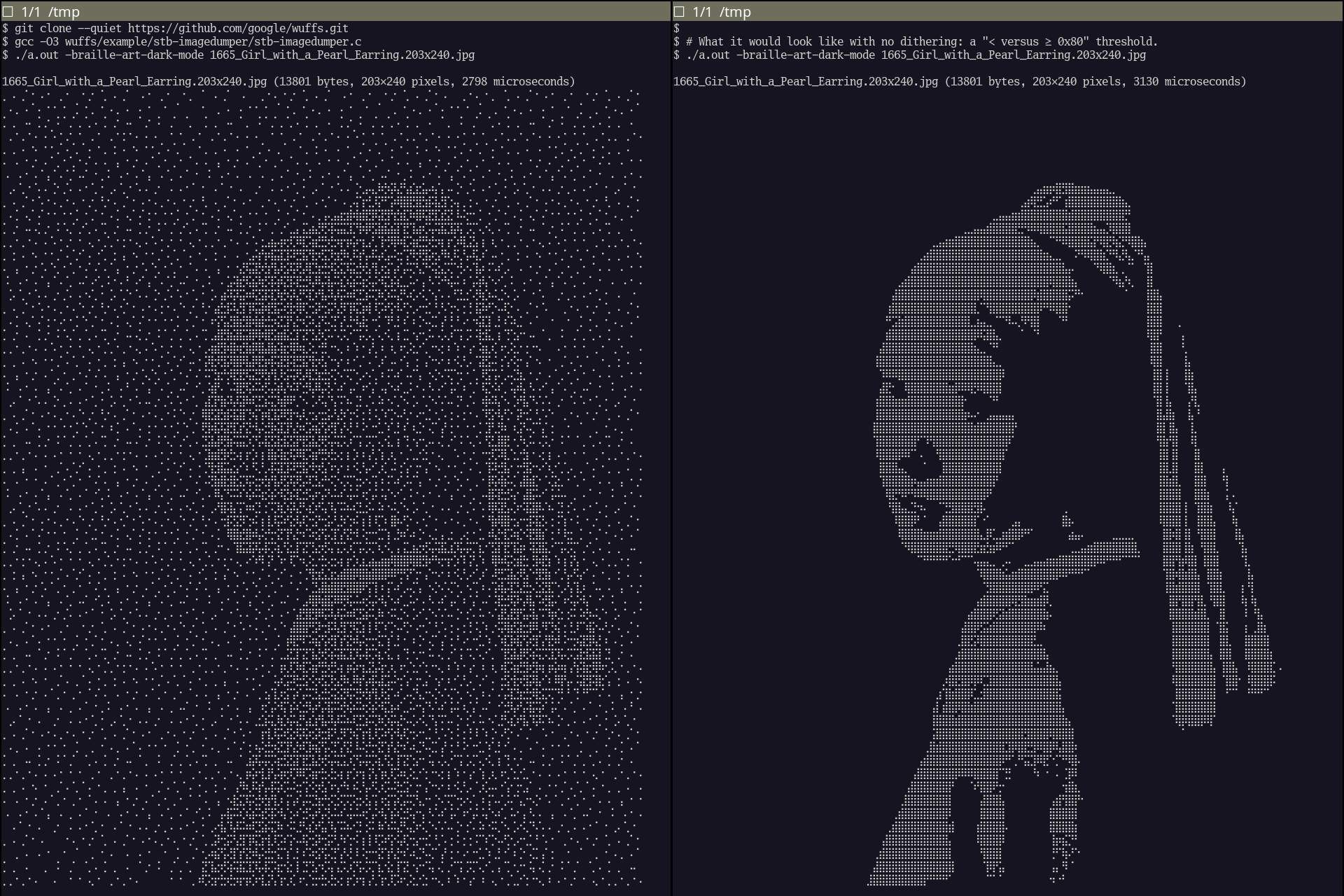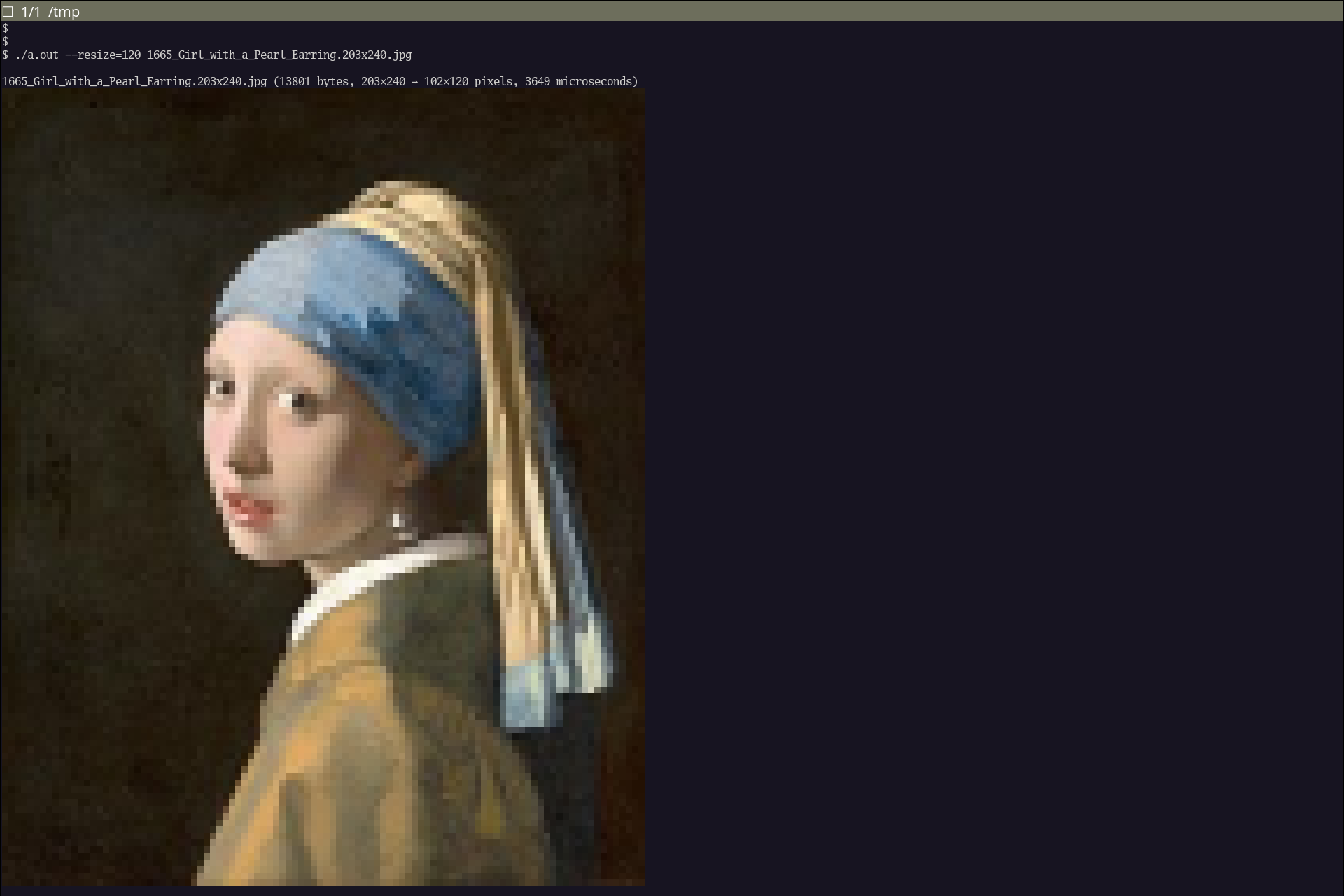Nigel Tao
Blue Noise Braille Art
Speaking of Braille art yesterday, Wuffs’ suite of example programs recently gained one demonstrating Wuffs being a drop-in replacement for part of the STB Image library - providing the same API functions but with a different (and memory-safe) implementation. Thanks to Rich Geldreich for the suggestion.
Wuffs’ example/stb-imagedumper program exercises the stbi_load
function
but, coincidentally, it can also output Braille art to the terminal - using
Unicode Braille Pattern
characters (like ⠣ and ⣳) as a 2×4 matrix of off-or-on monochrome pixels.
With the -braille-art-dark-mode flag, the program converts to 8-bit grayscale
and, from there, it uses blue noise
dithering. Here’s what that looks like,
compared to simply taking the most significant bit of that 8-bit grayscale as
1-bit monochrome (as done in
yesterday’s blog post’s package bug code).

The output on the right has exactly the same command line arguments and flags. It’s just recompiled after this patch:
index 59c9cce2..c239e50b 100644
--- a/example/stb-imagedumper/stb-imagedumper.c
+++ b/example/stb-imagedumper/stb-imagedumper.c
@@ -923,7 +923,7 @@ handle(const char* filename,
for (int dx = 0; (dx < 2) && ((x + dx) < w); dx++) {
size_t tx = x + dx;
uint8_t pixel = pixels[(ty * (size_t)w) + tx];
- uint8_t threshold = g_noise[ty & 31][tx & 31];
+ uint8_t threshold = 0x7F;
if ((xor^pixel) > (xor^threshold)) {
uint8_t b = g_braille[dy][dx];
dst[1] |= b >> 6;
The example/stb-imagedumper program can also output ANSI-colored blocks: RGB
instead of grayscale.

The public domain 203×240 source image comes from the Girl with a Pearl Earring Wikipedia page. The original 17th century painting was by Vermeer.
Published: 2024-10-07